Wärtsilä seal systems gain Lloyd's Register recognition for meeting EPA requirements
Lloyd's Register review is said to have shown that Wärtsilä seals can be used with mineral oils and a range of environmentally acceptable lubricants and are unlikely to leak mineral oils into the sea during normal operating conditions.
Finland's Wärtsilä says it has received an "important service level recognition" for its Wärtsilä Airguard and Wärtsilä Oceanguard propeller shaft sealing systems from Lloyd's Register. The recognition of marine classification society Lloyd's Register is said to confirm that the sealing systems meet the US Environmental Protection Agency's (EPA) requirements.
Wärtsilä, a leading solutions and services provider and a pioneer in environmentally sustainable sealing solutions, is the first company in the industry to gain this recognition from Lloyd's Register.
In March 2014, Wärtsilä announced that its Wärtsilä Airguard and Wärtsilä Oceanguard seal products can continue to utilise mineral oil since they meet the guidelines set out in the US Environmental Protection Agency's 2013 revised Vessel General Permit. As the Wärtsilä Airguard and Wärtsilä Oceanguard seals meet the defined regulatory prerequisites, owners and operators of commercial vessels of over 79ft (24 metres), sailing within US waters with either of these systems installed are not required to change to an environmentally acceptable lubricant (EAL).
The Lloyds' Register's service level recognition, received on 22 May 2014, confirmed that Wärtsilä's Airguard and Oceanguard are well suited for their intended purpose and meet the US Environmental Protection Agency's 2013 revised Vessel General Permit (VGP) requirements of Part 2.2.9 under normal operating conditions.
Prior to the approval, Lloyd's Register conducted a desktop review where the product details were reviewed to establish whether the seal presents an "oil to sea" interface in normal operation. The results are said to have shown that the Wärtsilä Airguard and Oceanguard propeller shaft seals are able to be used with mineral oils and a range of EALs as defined within the US EPA VGP 2013. Furthermore, it was stated that the Wärtsilä Airguard and Oceanguard propeller shaft seals are unlikely to leak mineral oils into the sea during normal operating conditions.
Increasing demand for technologically advanced seals
Commenting on the demand for technologically advanced seals, Wärtsilä said: "Ship owners focus increasingly on improving lifecycle cost management. The demands on components such as seals is shifting towards higher level, technologically advanced products that can offer a longer service life to compensate for their higher initial cost. Another key driver in the marine industry is environmental legislation. For ship operators, new regulations could mean not only financial and legislative consequences, but also being completely banned from certain regions unless their vessels are upgraded to comply with the new regulations. Consequently, there is a growing demand for higher performance seals that offer better reliability, biodegradable lubricants, as well as completely water-lubricated systems that can guarantee zero pollution."
The Finnish firm added: "As the seals and bearings solution provider with the widest range of products, both oil and water lubricated, Wärtsilä is uniquely positioned to offer ship owners solutions that improve lifecycle efficiency and meet regulatory requirements."
Wärtsilä, a leading solutions and services provider and a pioneer in environmentally sustainable sealing solutions, is the first company in the industry to gain this recognition from Lloyd's Register.
In March 2014, Wärtsilä announced that its Wärtsilä Airguard and Wärtsilä Oceanguard seal products can continue to utilise mineral oil since they meet the guidelines set out in the US Environmental Protection Agency's 2013 revised Vessel General Permit. As the Wärtsilä Airguard and Wärtsilä Oceanguard seals meet the defined regulatory prerequisites, owners and operators of commercial vessels of over 79ft (24 metres), sailing within US waters with either of these systems installed are not required to change to an environmentally acceptable lubricant (EAL).
The Lloyds' Register's service level recognition, received on 22 May 2014, confirmed that Wärtsilä's Airguard and Oceanguard are well suited for their intended purpose and meet the US Environmental Protection Agency's 2013 revised Vessel General Permit (VGP) requirements of Part 2.2.9 under normal operating conditions.
Prior to the approval, Lloyd's Register conducted a desktop review where the product details were reviewed to establish whether the seal presents an "oil to sea" interface in normal operation. The results are said to have shown that the Wärtsilä Airguard and Oceanguard propeller shaft seals are able to be used with mineral oils and a range of EALs as defined within the US EPA VGP 2013. Furthermore, it was stated that the Wärtsilä Airguard and Oceanguard propeller shaft seals are unlikely to leak mineral oils into the sea during normal operating conditions.
Increasing demand for technologically advanced seals
Commenting on the demand for technologically advanced seals, Wärtsilä said: "Ship owners focus increasingly on improving lifecycle cost management. The demands on components such as seals is shifting towards higher level, technologically advanced products that can offer a longer service life to compensate for their higher initial cost. Another key driver in the marine industry is environmental legislation. For ship operators, new regulations could mean not only financial and legislative consequences, but also being completely banned from certain regions unless their vessels are upgraded to comply with the new regulations. Consequently, there is a growing demand for higher performance seals that offer better reliability, biodegradable lubricants, as well as completely water-lubricated systems that can guarantee zero pollution."
The Finnish firm added: "As the seals and bearings solution provider with the widest range of products, both oil and water lubricated, Wärtsilä is uniquely positioned to offer ship owners solutions that improve lifecycle efficiency and meet regulatory requirements."
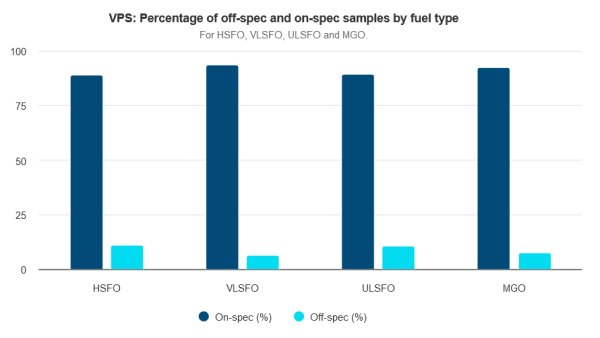
|
Is your vessel fully protected from the dangers of poor-quality fuel? | Steve Bee, VPS
Commercial Director highlights issues linked to purchasing fuel and testing quality against old marine fuel standards. |
|
|
|
||
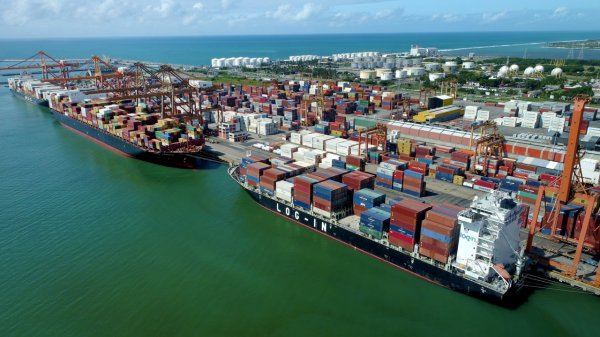
|
GDE Marine targets Suape LSMGO by year-end
Expansion plan revealed following '100% incident-free' first month of VLSFO deliveries. |
|
|
|
||
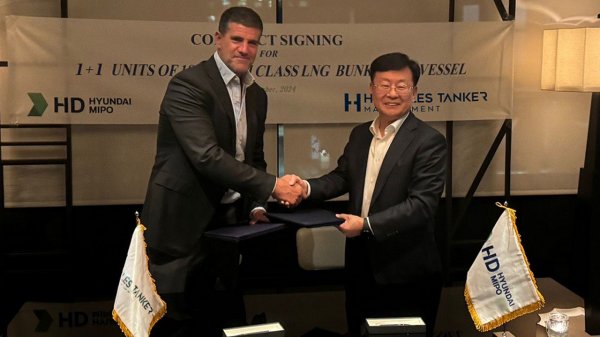
|
Peninsula CEO seals deal to build LNG bunker vessel
Agreement signed through shipping company Hercules Tanker Management. |
|
|
|
||
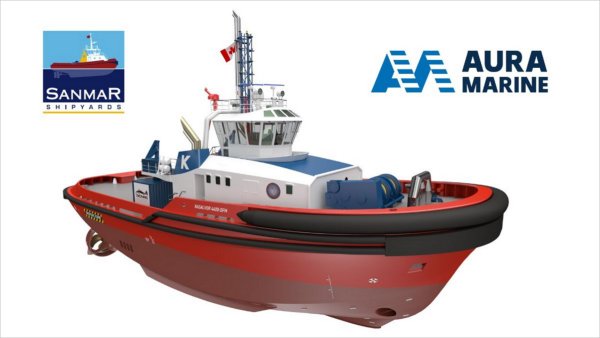
|
Auramarine supply system chosen for landmark methanol-fuelled tugs
Vessels to enter into service in mid-2025. |
|
|
|
||

|
Rise in bunker costs hurts Maersk profit
Shipper blames reroutings via Cape of Good Hope and fuel price increase. |
|
|
|
||
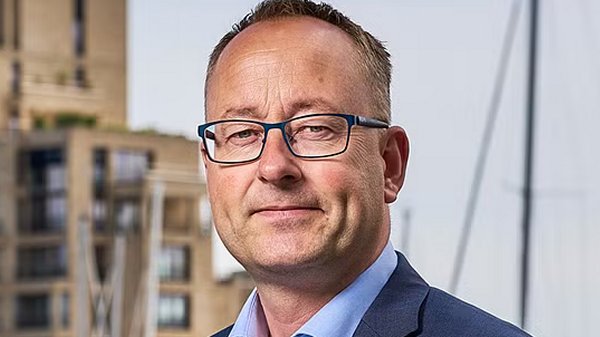
|
Dan-Bunkering posts profit rise in 2023-24
EBT climbs to $46.8m, whilst revenue dips from previous year's all-time high. |
|
|
|
||
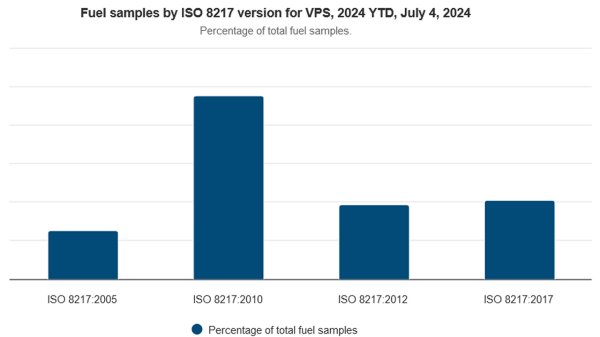
|
ISO 8217:2024 'a major step forward' | Steve Bee, VPS
Revision of international marine fuel standard has addressed a number of the requirements associated with newer fuels, says Group Commercial Director. |
|
|
|
||

|
EBT down 45.8% for Glander International Bunkering
CFO lauds 'resilience' as firm highlights decarbonization achievements over past year. |
|
|
|
||

|
KPI OceanConnect posts 59% drop in pre-tax profit
Diminished earnings and revenue as sales volume rises by 1m tonnes. |
|
|
|
||
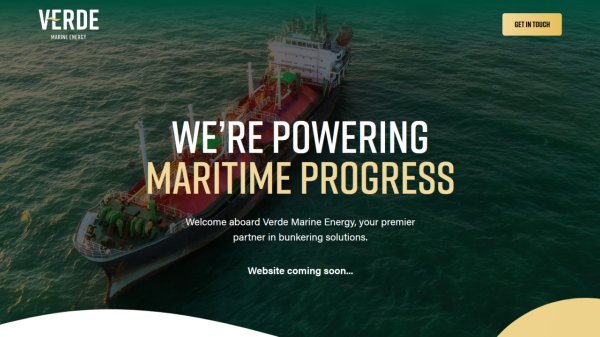
|
Delta Energy's ARA team shifts to newly launched Verde Marine
Physical supplier offering delivery of marine gasoil in the ARA region. |
|
|
|
||
Related Links
- · X72 and X62 engines pass 'milestone' tests [Insights]
- · World's first LNG-fuelled icebreaker to be powered by Wärtsilä dual-fuel engines [Insights]
- · New EAL service for ship operators [Insights]
- · Wärtsilä environmental seal systems allow mineral oil to be used in US waters [Insights]
- · Finland [Directory]
- · United States [Directory]

